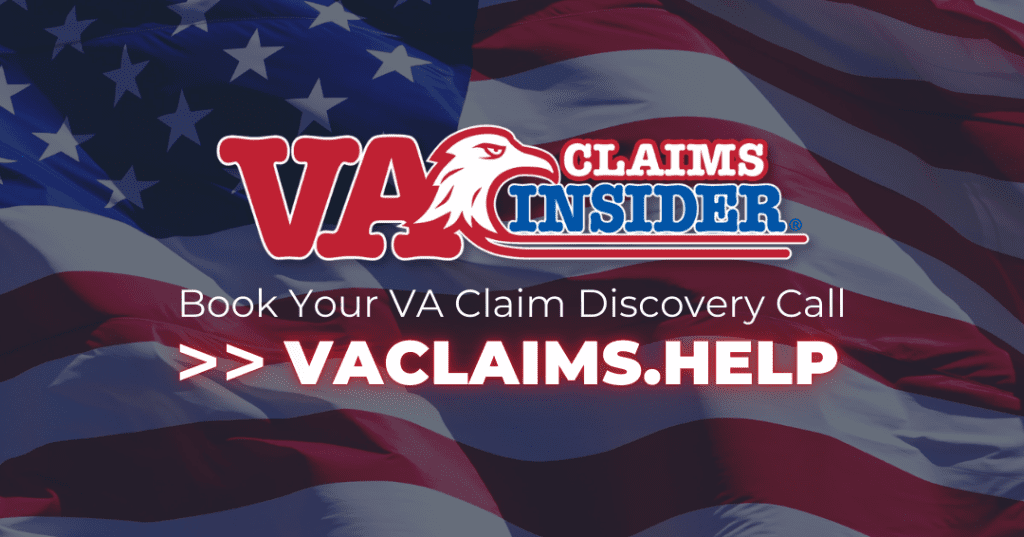Looking for Expert-Level VA Claim Answers?📱Call Us Now! 737-295-2226
As a veteran, the GI Bill is a powerful tool for transitioning into civilian life and launching a successful career. Whether you’re looking to gain hands-on experience at a vocational school, enhance your skills at a technical school, or pursue a professional certification, the GI Bill can help you cover the cost.
But with so many options available, it’s easy to get confused about how the benefits apply to each.
In this post, we break down everything you need to know about using your GI Bill for trade schools and certifications, including the different types of trade schools that accept the GI Bill.
We’ll also highlight key differences, overlaps, and some of the best programs to consider. Let’s begin!
Table of Contents
Summary of Key Points
- GI Bill Coverage: The GI Bill covers both vocational training programs at trade schools and industry-recognized certifications in a wide range of fields, including healthcare, IT, skilled trades, and business.
- Trade Schools: These programs often involve comprehensive, hands-on training in specific fields and may lead to certifications or licenses (e.g., welding, automotive repair, culinary arts).
- Certifications: Typically quicker and more specialized, certifications allow veterans to enhance their skills in specific areas like IT, project management, or healthcare, and can often be pursued independently.
- Overlap: Many trade schools that accept the GI Bill incorporate certification training into their curriculum, providing both in-depth education and a path to certification in fields like welding, IT, and healthcare.

GI Bill for Trade Schools and Certifications
The GI Bill offers veterans an excellent opportunity to pursue a variety of trade school pathways, including vocational schools, technical schools, and certifications. Whether you’re interested in hands-on vocational training or earning a professional certification, you can use your GI Bill benefits to help you cover the costs.
Let’s take a closer look at both options.
GI Bill for Trade Schools
Trade schools, also called vocational schools, provide hands-on, career-specific training designed to help you acquire practical skills for specific jobs. Programs typically range from a few months to two years, depending on the field.
Here are some types of trade schools that are covered by the GI Bill:
- Vocational Schools: Culinary arts, cosmetology and barbering, HVAC (Heating, Ventilation, and Air Conditioning), electrician training, plumbing, and more.
- Apprenticeship Programs: These combine on-the-job training with classroom education and cover fields like construction, electrical work, welding, and HVAC.
- Technical Schools: Automotive repair, aircraft maintenance, industrial machinery, and IT/cybersecurity certifications.
- Online Trade Schools: Offering flexibility for veterans who need to balance school with other responsibilities, online programs are available in fields like computer programming, web development, graphic design, and digital marketing.
GI Bill for Certifications
Certifications are specialized credentials that validate your expertise in a specific field. Many veterans opt for certifications because they can be completed relatively quickly (and often help advance your career). The GI Bill can cover the cost of various certifications, which are often in high-demand fields.
Some of the most popular categories include:
- IT & Cybersecurity: CompTIA A+, CCNA, Certified Ethical Hacker (CEH)
- Healthcare: Certified Nursing Assistant (CNA), Medical Assistant, Phlebotomy Technician, Radiology Technologist
- Project Management & Business: PMP, Six Sigma Green Belt, Certified ScrumMaster (CSM)
- Skilled Trades: HVAC, plumbing, welding, auto mechanic, carpentry certifications
These certifications can help veterans gain the credentials needed to excel in fast-growing sectors, including IT, healthcare, and skilled trades.
The Overlap Between Trade Schools and Certifications
Many trade schools provide training that leads directly to certifications. This creates an overlap between the two options, allowing veterans to pursue both in a single program. For example:
- IT and Networking: A vocational school may provide in-depth training in networking and security while helping you earn certifications like CompTIA A+ or Cisco CCNA.
- Healthcare: A nursing program can prepare you to become a Registered Nurse (RN) while also helping you obtain certifications like CNA or Phlebotomy Technician.
- Skilled Trades: A welding school might train you in the craft while helping you pass the Certified Welder exam.
The key takeaway is that many vocational programs integrate certifications into their curriculum, making the path to a successful career even more efficient.
Which Option Is Right for You?
The best choice between a trade school and a certification depends on your career goals:
- Trade Schools: If you want hands-on experience and are looking for comprehensive training in fields like automotive repair, HVAC, or welding, a trade school is the way to go. These programs often prepare you for certifications as part of the curriculum, giving you a broad skill set for the workforce.
- Certifications: If you’re looking to specialize in a particular area or enhance existing skills in a shorter time frame, certifications may be a better option. Fields like IT, healthcare, and project management offer certifications that can make a significant impact on your career prospects.
In many cases, veterans choose a combination of both—attending a trade school for hands-on training and then pursuing certifications to enhance their qualifications.
Types of Trade Schools That Accept GI Bill
Vocational schools like those offering technical school programs for fields like auto repair, HVAC, or IT can also be covered by the GI Bill, giving you the freedom to choose a program that fits your career goals.
Trade schools that accept GI Bill include:
- Vocational Schools: Culinary arts, cosmetology, HVAC, electrician training, plumbing, etc.
- Apprenticeship Programs: Construction, electrical work, welding, HVAC technicians.
- Technical Schools: Automotive repair, aircraft maintenance, industrial machinery, IT/cybersecurity certifications.
- Online Trade Schools: Computer programming, graphic design, digital marketing, project management.
List of GI Bill-Approved Certifications
Here’s a breakdown of some popular GI Bill-approved certifications:
Information Technology (IT) & Cybersecurity
- CompTIA A+
- CompTIA Network+
- CompTIA Security+
- Cisco Certified Network Associate (CCNA)
- Certified Ethical Hacker (CEH)
- Certified Information Security Manager (CISM)
- Amazon Web Services (AWS) Certified Solutions Architect
Healthcare Certifications
- Certified Nursing Assistant (CNA)
- Certified Medical Assistant (CMA)
- Phlebotomy Technician (CPT)
- Registered Nurse (RN)
- Emergency Medical Technician (EMT)
Project Management & Business
- Project Management Professional (PMP)
- Certified ScrumMaster (CSM)
- Lean Six Sigma Green Belt
Skilled Trades
- HVAC Certification
- Plumbing Certification
- Welding Certification
- Auto Mechanic Certification (ASE)
Creative & Design
- Adobe Certified Expert (ACE)
- Graphic Design Certifications
Environmental & Sustainability
- LEED Green Associate
- Certified Sustainability Professional (CSP)
How to Use the GI Bill for Trade Schools & Certifications (3 Easy Steps!)
To use your GI Bill benefits for trade school or certifications, follow these 3 steps:
- Find Accredited Programs: Ensure the school or certification provider is approved by the VA.
- Submit Your GI Bill Benefits Application: Apply online through the VA website or work with the school’s VA liaison.
- Track Your Benefits: Monitor how many months of benefits you have left, as trade school programs typically require more time than certifications.
Wrapping Up
The GI Bill offers veterans the flexibility to pursue a variety of educational pathways, including vocational schools, technical schools, and certifications.
Whether you’re seeking hands-on training in a skilled trade or looking to specialize in a high-demand area like IT or healthcare, the GI Bill can support your educational goals.
Be sure to verify that the program or certification is VA-approved and align it with your long-term career plans. By making the most of your benefits, you can set yourself up for a rewarding new career.

(FAQs) Frequently Asked Questions
Are vocational, technical, and trade schools the same?
Yes, vocational, technical, and trade schools all refer to schools that provide hands-on training for specific careers. The terms are often used interchangeably, though “trade schools” typically focus on skill-based fields like plumbing, welding, and HVAC, while “technical schools” may include more specialized fields like IT and engineering. All three are designed to prepare students for the workforce with practical, career-focused training.
Can I use the GI Bill for both a trade school and a certification?
Yes! Many trade schools offer programs that integrate certifications into their curriculum. You can use your GI Bill benefits for both types of education, depending on your career goals.
How do I verify if a trade school or certification is GI Bill-approved?
You can use the GI Bill Comparison Tool on the VA’s website to check if your school or certification provider is approved for GI Bill funding.
Related: The GI Bill Comparison Tool — 4 Features Every Veteran Should Know!
Does the GI Bill cover online trade schools and certifications?
Yes, many online trade schools and certification programs are eligible for GI Bill benefits, providing flexible options for veterans.
How long does it take to use my GI Bill benefits for a trade school or certification?
The length of time varies. Trade schools typically take longer to complete, while certifications can often be earned in a matter of months. Always check with your program provider for details.
Can the military pay for trade school?
Yes, the military provides funding options through the GI Bill, which can be used for trade schools and vocational programs. Additionally, veterans can often use benefits like the Post-9/11 GI Bill, Montgomery GI Bill, and Vocational Rehabilitation & Employment program to cover tuition and fees.
Does the Air Force pay for trade school?
Yes, the Air Force offers tuition assistance programs that can help pay for trade school during active duty, and veterans can also use their GI Bill benefits after separation to fund vocational training and certifications.
What qualifications can I get through flight training?
GI Bill Flight Training qualifications include:
- B747-400
- Dual engine
- Flight engineer
- Rotary wing
For more about using your GI Bill for flight school, click HERE.
Can I Use the GI Bill for HVAC Training?
Yes, the GI Bill can be used to cover the cost of HVAC training at accredited trade schools, vocational programs, and apprenticeships. Whether you’re looking to become a certified HVAC technician or pursue specialized training in heating, ventilation, and air conditioning systems, the GI Bill provides valuable financial support for these programs.
Many HVAC programs are approved for GI Bill benefits, allowing veterans to gain hands-on training and industry-recognized certifications in this high-demand field. Be sure to check that your chosen program is VA-approved to ensure you can use your benefits effectively.
What fields offer the best return on investment for veterans using GI Bill benefits?
Fields like IT, healthcare, skilled trades, and project management tend to offer strong job prospects and high earnings potential for veterans.
Related Blog Posts
Coolest Things You Can Use Your GI Bill For
The GI Bill Comparison Tool — 4 Features Every Veteran Should Know!
Want Expert-Level Support for Your VA Disability Claim? WE GOT YOUR SIX!

- VA Claims Insider is the #1 most trusted name in VA disability claims.
- Work directly with a VA claims coach who can educate you to VA claim victory.
- 25,000+ disabled veterans served in our membership programs since 2016.
- 30% average rating increase for veterans who complete our #1 rated Elite program.
- 4.7/5.0 average rating out of 5,500+ total reviews; over 4,500 5-star reviews.
Author

Eric Webb
Eric has written and worked in the field of Veterans Disability since 2020 and enjoys writing educational content for the veteran population. His prior work has been published in the Official Journal of the American College of Sports Medicine (ACSM). He holds a Degree in Health and Exercise Science.



